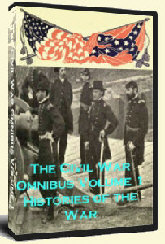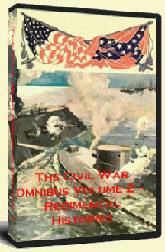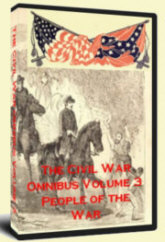Nathan Bedford Forrest
While many of the figures associated with the Confederacy have become controversial in the years since the war, few have been the subject of more controversy than Nathan Bedford Forrest.
A man of contradictions himself, it’s no wonder that Forrest stirs such strong feelings – either of respect or disgust – in so many people. Nor would this surprise Forrest, who was just as divisive in his lifetime as he is now.
Get there first with the most. Nathan Bedford Forrest
A truly self-made man if there ever was one, Nathan Bedford Forrest was born in 1821 to a poor Tennessee family. When his father died, leaving a wife and twelve children, Forrest, then 17, took over as head of the family. By 1858, Forrest was a Memphis city alderman, owner of several plantations, slave trader, and a millionaire.
At the outset of Civil War in 1861, Forrest, who was exempted from service by his planter status, instead chose to join the Confederate Army as a private. He outfitted an entire regiment with horses, weapons, and equipment out of his own pocket; his Army superiors and the governor of Tennessee, surprised both by Forrest’s voluntary service and largesse, commissioned him a colonel.
Forrest had no military training, but he was a quick learner, and soon had command of his own regiment. Of his regiment, a number were African-American; it has been reported that when war began, Forrest offered 44 of his slaves freedom in exchange for serving in the Confederate Army, and that only one deserted, the remainder staying with Forrest until the war’s end.
I have never, on the field of battle, sent you where I was unwilling to go myself; nor would I advise to go a course which I myself was unwilling to pursue. Nathan Bedford Forrest
In many of the major battles of the Civil War, Forrest distinguished himself as fearless soldier and a strong leader. He fought at Fort Donelson, Shiloh, and Murfreesboro, moving up quickly. It’s a notable fact that Forrest was one of few generals, Union or Confederate, who began the war as a private and ended as a general.
Lack of military training notwithstanding, Forrest nevertheless not only distinguished himself in the service of the Confederacy, but also revolutionized warfare. Known as “the wizard of the saddle,” Forrest’s mobile regimental tactics would later be translated from horse to vehicle in modern warfare. Another of Forrest’s ideas that continued to find use was the concept of special forces; interestingly, Forrest’s Elite Company, as it was known, included at least eight African-American soldiers.
However, General Forrest’s career was not without scandal; in April 1864, General Forrest led his troops in the capture of Fort Pillow in Tennessee. Many of the Union soldiers defending Fort Pillow were African-American, and the subsequent battle, in which most of the soldiers, both white and black, were killed, was the focus of a congressional investigation as to whether the attack was actually a massacre, spurred on by the Confederate resentment for the African-American soldiers. Although Forrest was cleared of the charges of war crimes associated with the battle, he was afterward known in the North as “Fort Pillow Forrest.”
When news of General Lee’s surrender at Appomattox reached Forrest in Florida, he too surrendered. He’d been injured several times during the war, had 30 horses shot out from under him, and his cavalry included 65 African-American soldiers when he surrendered.
Financially devastated by the war, Forrest went to work for the railroad. By the time of his death, his circumstances were destitute.
We have but one flag, one country; let us stand together. We may differ in color, but not in sentiment. Many things have been said about me which are wrong, and which white and black persons here, who stood by me through the war, can contradict. Nathan Bedford Forrest
Reduced circumstances did not humble Forrest, who was still a controversial character even after the war. One of the most infamous activities Forrest may or may not have pursed after the war was the formation of the Ku Klux Klan. Although he denied any official participation in the Ku Klux Klan, Forrest was named the honorary Grand Wizard of a KKK convention in Nashville in 1867. Forrest apparently did not support the activities of the KKK, and in 1869, disgusted with the violence and harassment wrought by the Klan, ordered them to disband. increasingly violent tactics, ordered the Klan to disband, claiming that the Klan was “being perverted from its original honorable and patriotic purposes, becoming injurious instead of subservient to the public peace.” When Congress investigated KKK activities in 1871, they determined that there was no evidence that Forrest had either led or founded the KKK, and that his involvement consisted of his efforts to disband the organization.
Forrest’s efforts to distance himself from the Ku Klux Klan were apparently sincere; in 1875, he became the first white man to speak to the Independent Order of Pole-Bearers Association, a civil rights organization made up of freedmen. Forrest’s short speech included statements about the right of freedmen to vote for their candidate of choice and his hope for an expanded role for freedmen in the South. He shocked many, both black and white, by ending his speech by kissing a daughter of one of the freedmen on the cheek.
Forrest’s reputation has continued to grow both as a revered leader and a representative of racial hatred in the years since the war. Regardless, he is a figure who continues to fascinate.


